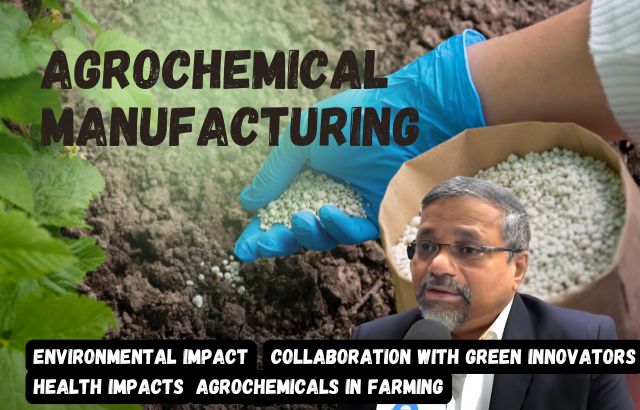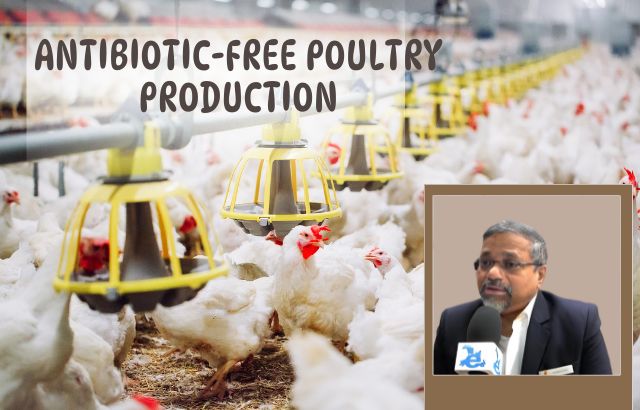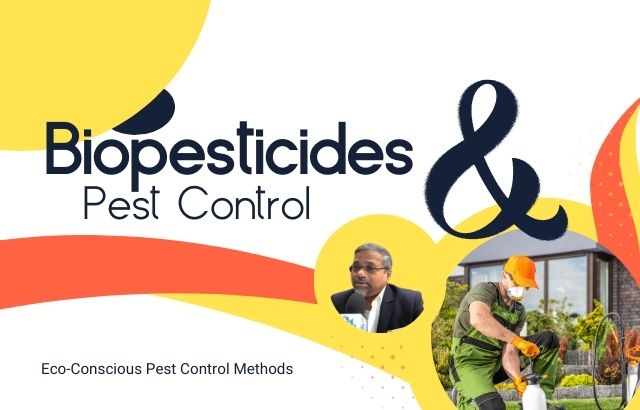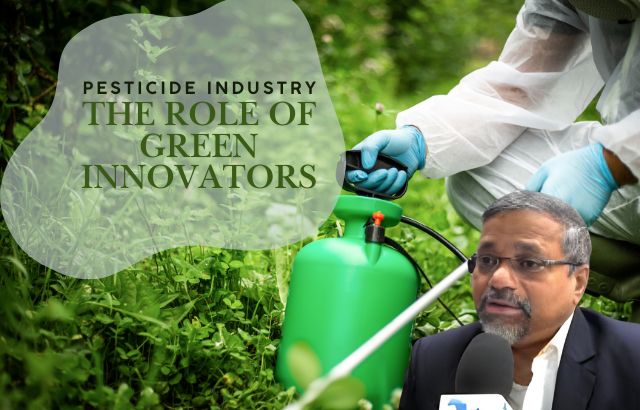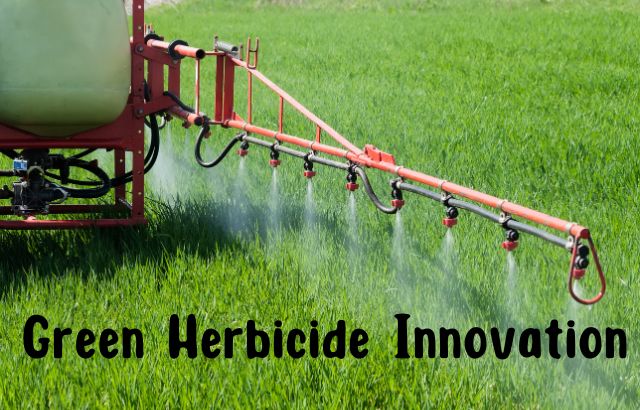The Hidden Costs of Agrochemicals
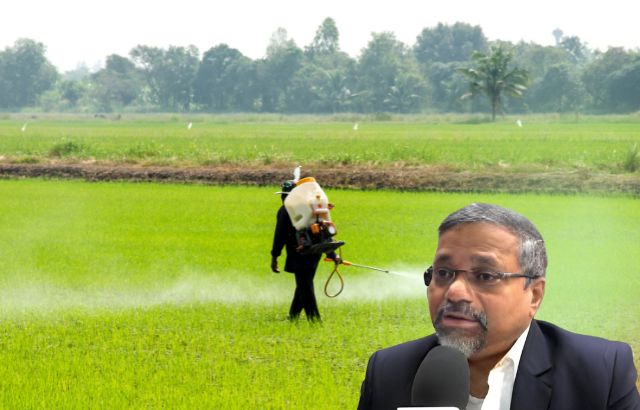
Agrochemicals—pesticides, herbicides, fungicides, and synthetic fertilizers—have revolutionized agriculture by increasing crop yields and controlling pests. However, their long-term use has raised serious concerns about their effects on human health, wildlife, and the environment.
Environmental Impact

- Soil Degradation: Chemicals, especially synthetic fertilizers, can degrade soil quality over time, reducing its fertility and capacity to support plant life.
- Water Contamination: Runoff from farms can lead to chemical contamination of groundwater and surface waters, harming aquatic life and affecting human health.
- Air Pollution: Volatile organic compounds (VOCs) from pesticides contribute to air pollution, affecting both environmental and human health.
Health Impacts
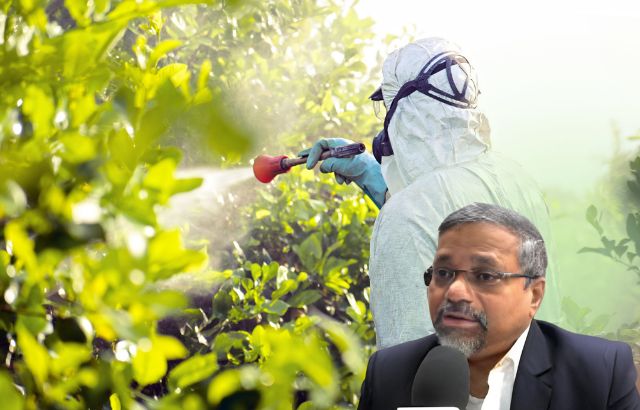
- Cancer and Reproductive Issues: Long-term exposure to certain agrochemicals like organophosphates has been linked to cancer and reproductive health problems.
- Endocrine Disruption: Some chemicals, such as glyphosate, can interfere with hormone production, potentially leading to developmental and reproductive problems.
- Chronic Conditions: Farmers and workers are particularly vulnerable to respiratory issues, neurological conditions, and other chronic diseases due to chemical exposure.
The Cumulative Nature of Chemical Exposure
Unlike acute exposures, which cause immediate harm, chronic exposure to agrochemicals leads to cumulative health risks that might not become evident until much later. This also results in long-term environmental degradation.
Sustainable Farming Practices: The Path Forward

Sustainable farming practices offer alternatives to chemical-intensive agriculture, focusing on reducing environmental impacts while improving soil health and crop productivity. Some of these practices include:
- Integrated Pest Management (IPM): IPM uses a combination of biological, cultural, and chemical methods to control pests while minimizing the use of harmful chemicals.
- Organic Farming: Organic farming avoids synthetic chemicals, focusing instead on natural pest control and soil health through composting, crop rotation, and the use of organic fertilizers.
- Agroforestry: Incorporating trees and shrubs into agricultural systems enhances biodiversity, improves water retention, and reduces soil erosion.
- Precision Agriculture: Using technology to optimize resource use (water, fertilizers, pesticides) in a targeted way, reducing the need for broad-spectrum chemical applications.
- Regenerative Agriculture: Regenerative farming goes beyond sustainability by focusing on restoring soil health and increasing biodiversity through practices like no-till farming and rotational grazing.
Alternatives to Traditional Chemicals
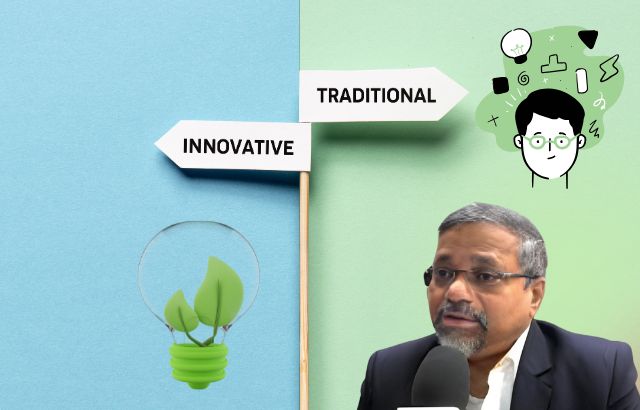
Transitioning to sustainable farming often involves replacing harmful chemicals with natural or less toxic alternatives. Some of these alternatives include:
- Biological Pesticides: Derived from natural organisms, these are effective at controlling pests without harming other wildlife.
- Neem Oil: A natural insect repellent and fungicide, neem oil is effective against a wide range of pests.
- Cover Crops: Crops like clover can suppress weeds naturally, reducing the need for herbicides.
- Compost and Organic Fertilizers: Instead of synthetic fertilizers, farmers can use compost or manure to enrich the soil.
The Role of Green Innovators
Green innovators are pivotal in shifting agriculture toward more sustainable practices. These innovators are focused on:
- Developing sustainable farming technologies like precision agriculture tools and autonomous weeding robots.
- Researching natural pesticides and alternative fertilizers to replace harmful chemicals.
- Advocating for policy changes that support sustainable farming practices.
Calculations by Green Innovators
Let’s calculate the potential benefits of transitioning from conventional to organic farming practices. Below is an example using input costs for synthetic fertilizers and pesticides.
Scenario: Conventional vs Organic Farming
A farm uses 100 kg of synthetic fertilizer and 50 liters of pesticide per hectare each year. Here are the costs:
| Item | Conventional Farming | Organic Farming |
|---|---|---|
| Fertilizer | $200 (100 kg × $2/kg) | $210 (70 kg × $3/kg) |
| Pesticide | $250 (50 liters × $5/liter) | $350 (35 liters × $10/liter) |
| Total Cost | $450 | $560 |
Although organic farming costs more upfront, over time, improved soil health and better pest control may lead to more sustainable and cost-effective production.
Ask jaiguru : Frequently Asked Questions (FAQs) on using agrochemicals in farming
1. What are Green Innovators in the context of agrochemicals?
Green Innovators are individuals, startups, and organizations focused on creating environmentally-friendly, sustainable solutions in agriculture. These innovators develop new technologies and methods that aim to reduce the environmental impact of conventional farming practices, such as using fewer chemicals, improving soil health, and enhancing resource efficiency.
2. How can agrochemical companies benefit from partnering with Green Innovators?
Agrochemical companies can benefit by collaborating with Green Innovators in several ways:
- Developing eco-friendly alternatives: Green Innovators often focus on creating biological pesticides, organic fertilizers, and natural pest control methods that can reduce the reliance on harmful chemicals.
- Expanding product offerings: By adopting or investing in sustainable products, companies can diversify their portfolios, catering to the growing demand for organic and eco-friendly agricultural solutions.
- Improving corporate reputation: Aligning with sustainable practices helps improve a company’s image, attracting consumers who are increasingly concerned about environmental and health issues.
- Compliance and future-proofing: By staying ahead of regulatory changes focused on environmental sustainability, agrochemical companies can mitigate the risk of product bans or stricter regulations.
3. What kind of products can agrochemical companies develop with Green Innovators?
Agrochemical companies can collaborate with Green Innovators to develop a variety of sustainable products, including:
- Biological pesticides: Pesticides derived from natural organisms like bacteria, fungi, or beneficial insects.
- Organic fertilizers: Nutrient-rich fertilizers made from organic sources like compost, manure, and algae.
- Precision farming tools: Technologies that optimize the use of water, fertilizers, and pesticides, minimizing waste and reducing chemical inputs.
- Eco-friendly packaging: Biodegradable or recyclable packaging solutions that reduce plastic waste and improve sustainability.
4. Why is the demand for sustainable agrochemicals increasing?
The demand for sustainable agrochemicals is increasing due to several factors:
- Health and environmental concerns: Increased awareness of the health risks posed by synthetic chemicals and their impact on the environment is driving consumers and farmers toward safer, more sustainable alternatives.
- Consumer preferences: There is growing demand for organic and sustainably-produced food, which in turn is encouraging agrochemical companies to invest in eco-friendly solutions.
- Regulatory pressures: Governments are introducing stricter regulations related to pesticide use, chemical residues, and environmental impact, encouraging agrochemical companies to adopt greener practices.
- Climate change: Farmers are looking for more resilient, climate-adaptive solutions, which includes sustainable farming methods and products that enhance soil health and reduce chemical dependency.
5. Can agrochemical companies completely replace traditional chemicals with sustainable alternatives?
While it may not be feasible to completely eliminate traditional chemicals in the short term, agrochemical companies can reduce their reliance on harmful chemicals by integrating sustainable alternatives. For example, they can:
- Promote Integrated Pest Management (IPM) techniques, combining biological, cultural, and chemical controls.
- Develop products that are compatible with precision agriculture to minimize chemical inputs.
- Transition gradually to biological pesticides and organic fertilizers as viable alternatives.
6. How do sustainable farming practices like organic farming impact agrochemical companies?
Sustainable farming practices, such as organic farming, can significantly impact agrochemical companies by reducing the demand for synthetic chemicals. However, this shift also presents new opportunities for companies to diversify their product lines and tap into the growing organic market. By investing in organic and eco-friendly solutions, companies can:
- Meet the rising demand for organic inputs.
- Reduce the environmental footprint of their products.
- Position themselves as leaders in the growing organic market segment.
7. What are the main challenges agrochemical companies face when adopting sustainable practices?
Adopting sustainable practices comes with several challenges:
- Higher initial costs: Sustainable alternatives such as biological pesticides and organic fertilizers may have higher upfront costs, making it difficult for companies to shift away from traditional chemicals without significant investment.
- Market resistance: There may be resistance from farmers or consumers who are accustomed to the effectiveness and convenience of traditional chemicals.
- Research and development: Developing new sustainable products requires investment in research and development (R&D) to ensure that these alternatives are as effective as their synthetic counterparts.
- Regulatory hurdles: Agrochemical companies may face complex regulatory challenges in shifting to greener products, especially in markets with stringent approval processes for new agricultural products.
8. How can agrochemical companies work with Green Innovators to overcome these challenges?
Agrochemical companies can partner with Green Innovators in several ways to overcome challenges:
- Joint ventures or acquisitions: Partnering with or acquiring startups and innovators that specialize in sustainable technologies can accelerate the development and commercialization of green products.
- R&D collaboration: By co-developing products with Green Innovators, agrochemical companies can leverage expertise in sustainable farming practices, reducing the time and cost of product development.
- Funding innovation: Investing in the research of sustainable farming solutions and eco-friendly agrochemicals can lead to breakthroughs that help overcome current limitations.
- Collaborating with regulators: Working together with regulatory bodies, Green Innovators, and environmental organizations can help ensure that sustainable products meet legal requirements and can be effectively introduced to the market.
9. What benefits can agrochemical companies expect in terms of cost savings?
Agrochemical companies can experience cost savings in several areas:
- Operational efficiency: Adopting sustainable manufacturing practices and improving resource efficiency (water, energy, raw materials) can reduce operational costs over time.
- Waste reduction: Green Innovators often focus on minimizing waste and using recyclable materials, which can lead to cost savings in production.
- Long-term profitability: Although the initial investment in sustainable products may be higher, over time, these products can attract a premium price in the market and provide a competitive advantage, leading to higher long-term profits.
10. What are the long-term benefits of working with Green Innovators for agrochemical companies?
The long-term benefits of collaborating with Green Innovators include:
- Market leadership: Agrochemical companies that embrace sustainability will be seen as leaders in the transition to more eco-friendly agriculture, positioning themselves as forward-thinking and responsible.
- Customer loyalty: As consumers become more environmentally-conscious, companies that adopt sustainable practices will gain the trust and loyalty of eco-conscious customers.
- Regulatory advantages: Companies that develop sustainable products early will be better prepared for future regulatory requirements, avoiding potential fines or bans on traditional chemical products.
- Global competitiveness: As sustainable farming practices become the global norm, companies that innovate now will be ahead of the curve in meeting international demands for eco-friendly agricultural solutions.

